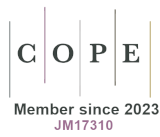Mity jako „kolektywne doświadczenia” w Niemieckiej Republice Demokratycznej – na przykładzie wybranych utworów Heinera Müllera
DOI:
https://doi.org/10.18778/1427-9665.13.09Słowa kluczowe:
Heiner Müller, myth in the literature, Philoctetes, HoratianAbstrakt
–
Bibliografia
Chodkowski R. (2009), Filoktet. Wstęp, [w:] Sofokles: Tragedie. Tom I. Ajas, Trachinki, Filoktet, Edyp w Kolonos (tłum. Chodkowski R.), Towarzystwo Naukowe Katolickiego Uniwersytetu Lubelskiego Jana Pawła II, Lublin, s. 259–302.
Google Scholar
Eke N. (1999), Heiner Müller, Philipp Reclam, Stuttgart.
Google Scholar
Emmerich W. (1990), Der vernünftige, der schreckliche Mythos. Heiner Müllers Umgang mit der griechischen Mythologie, [w:] Heiner Müller: Material. Texte und Kommentare, wyd. Hörnigk F., Reclam Verlag, Leipzig, s. 138–156.
Google Scholar
Jabłkowska J. (2014), Antique Dramas by Heiner Müller. Adaptation of myths or a new dramatic aesthetics, [w:] Collectanea Philologica XVII, s. 137–148.
Google Scholar
Moser A. (2014), Utopiekonzept und Geschichtsauffassung im Werk Heiner Müllers, Röhrig Universitätsverlag, St. Ingbert.
Google Scholar
Müller H. (1976), Filoktet (tłum. Jacek St. Buras), [w:] Literatura na Świecie 1/76, s. 74–107.
Google Scholar
Müller H. (1978), Horacjusz (tłum. Jacek St. Buras), [w:] Dialog nr 2, s. 96–102.
Google Scholar
Müller H. (1989), Drei Punkte zu Philoktet, [w:] Heiner Müller: Material. Texte und Kommentare, wyd. Hörnigk F., Reclam Verlag, Leipzig, s. 138–156.
Google Scholar
Müller H. (1999), Krieg ohne Schlacht.Leben in zwei Diktaturen, Kiepenheuer & Witsch, Köln.
Google Scholar
Muskała M. (2000), Tłumacz, ten sprawca zza biurka, [w:] Heiner M. Makbet, hamletmaszyna, anatomia Tytusa, (wyd. Buras J, Jeleń E., Muskała M.) Księgarnia Akademicka, Kraków.
Google Scholar
Sauerland K. (1976), Smutna prawda, [w:] Literatura na Świecie 1/76, s. 108–111.
Google Scholar
Schütte U. (2010), Heiner Müller, Böhlau Verlag, Köln.
Google Scholar
Pobrania
Opublikowane
Jak cytować
Numer
Dział
Licencja

Utwór dostępny jest na licencji Creative Commons Uznanie autorstwa – Użycie niekomercyjne – Bez utworów zależnych 4.0 Międzynarodowe.










